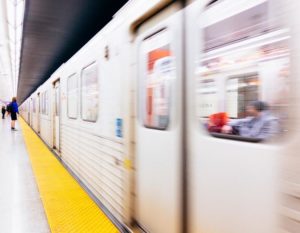Rebuilding Our World: The Wisdom of People with Disabilities Can Help
by Beth
 I happen to turn the radio on this past weekend just in time to hear a guy named Mik Scarlet saying the COVID environment is giving average people a better understanding of what it’s like to be at odds with the “built environment.” Scarlet, a wheelchair-user who is an expert in access and inclusion, explained it like this: “Non-disabled people are finally getting the idea of what it’s like to be told I’m sorry, you can’t come in, we don’t have access for you. It’s having your world shrunk, when it’s not your fault.”
I happen to turn the radio on this past weekend just in time to hear a guy named Mik Scarlet saying the COVID environment is giving average people a better understanding of what it’s like to be at odds with the “built environment.” Scarlet, a wheelchair-user who is an expert in access and inclusion, explained it like this: “Non-disabled people are finally getting the idea of what it’s like to be told I’m sorry, you can’t come in, we don’t have access for you. It’s having your world shrunk, when it’s not your fault.”
What I’d tuned in to that day was the National Public Radio Show On the Media. The weekend show was crediting the unique experience people with disabilities have as a group when it comes to rebuilding infrastructure.
During the show, host Bob Garfield wonders out loud if those experiences might help policy-makers and advocates when it comes to rebuilding our post-pandemic world. “Well, isn’t this awkward?” he asks in a refreshingly sardonic way. From there, he points out that eight billion people around the world are living in a centuries-old environment constructed in a way that now, during the pandemic, is dangerous: narrow passageways, crowded indoor spaces, poor ventilation. “Now we’re going to have to retrofit the entire built world to accommodate a new biological reality,” he says. “To some people, though, that’s a movie they’ve seen before. Namely, those with disabilities. The universe is facing what people who use wheelchairs have face their entire lives: an infrastructure that just doesn’t work.”
After his interview with Mik Scarlet, Garfield turns to Sara Hendren, professor at Olin College of Engineering. The mother of a child with Down syndrome, Hendren is the author of What Can A Body Do? How We Meet the Built World. The book discusses ways to apply the wisdom and work of people with disabilities to the process of redesigning a post-pandemic world.
Curb cuts, wheelchair-accessible bathrooms, auto-captioning, automatic doors, Braille buttons on elevators…over the past half-century, people with disabilities have worked for accommodations that are now so commonplace everyone takes them for granted.
What will be next?
Hendren says things we’ve seen this past year — seniors-only shopping hours, flexible remote work options, accessible food and grocery delivery services, opening shared streets to pedestrians and bicycles — are all changes people with disabilities have long been asking for but were not made until the mainstream needed them.
What I learned from the broadcast — and then from listening to the podcast again afterwards — is that when it comes time to start reimagining the post-pandemic-built world, policy makers would do well to take lessons from the disability rights movement. Disability advocates have a lot of experience rebuilding society to accommodate new biological realities. I hope the people in Washington are listening!







January 5th, 2021 at 5:12 pm
Do you help people if they are disabled but older. I am 62 years old